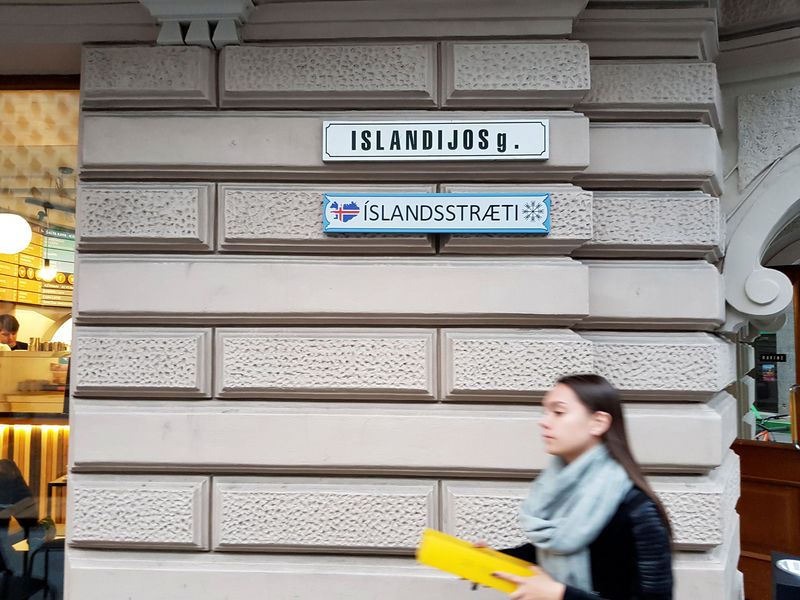By Andrius Sytas
VILNIUS (Reuters) - The Lithuanian language sign in Vilnius's former Jewish quarter reads "Jewish Street" and below hangs a Hebrew version, with Star of David. Not far away, in Cyrillic letters, is the plaque announcing Russia Street, and then there is Warsaw Street.
A rash of new foreign language signs has appeared in Vilnius's narrow thoroughfares honouring ethnic minorities that have inhabited the city, not least a Jewish community destroyed by Nazi occupiers. But government is determined to banish them in a dispute mirroring tension over the Baltic state's identity.
Lithuania's battle for independence from Moscow, culminating in a failed Soviet Army bid to crush secessionists in 1991, raised questions of ethnic and cultural identity suppressed over decades of Soviet rule.
"All these plaques are to celebrate our diversity," Vilnius Mayor Remigijus Simasius told Reuters as he unveiled a street sign in Hebrew and Yiddish.
But some still view neighbouring Russia and Poland with suspicion. Both occupied parts of what is today Lithuania in the 20th century. Before the war Vilnius - Wilno to give it its Polish name, Vilna in the days of Russian imperial rule - was a part of northeast Poland.
The government representative in Vilnius region Vilda Vaiciuniene said the plaques violated a law requiring all official names to be in Lithuanian, and must be removed.
"It looks like we will have to go to court over this," Vaiciuniene told Reuters.
Lithuania has long experienced tensions with its vocal and politically-united Polish minority, which makes up around 7 percent of its population. Ethnic Poles protested in 2014 when they were told to remove street signs in their language because of the same law.
Nearly all of Vilnius's ethnic Poles were forced to move to Poland after the end of World War Two. The city's Jewish population was wiped out. In a country whose borders and populations as well as street and town names have changed so often, history and language are a potent force.
SHADOW OF UKRAINE
Ethnic Poles' grievances have a sympathetic ear in Warsaw, muddying Lithuania's relationship with its crucial partner in energy and security.
"It is strange that the government sees this as something important. It's as if the government has nothing better to do. It's shameful", said Michal Mackevic, leader of the Lithuanian Polish Union.
Lithuanians have been slow to recognise their role in helping Nazi Germans exterminate Lithuanian Jews in World War Two, even after the Lithuanian president apologised in Israel's Knesset in 1995. This has been slowly changing, however, with thousands of ethnic Lithuanians flocking to a commemoration of the Holocaust for the first time in late August.
"To see here the street name in Hebrew language, Yiddish language is very moving," said Amir Moimon, Israel's ambassador to Lithuania. "This used to be a small ghetto, where 11 thousand Jews were packed .. And were all murdered."
There are fewer tensions over ethnic Russians, mostly Soviet-period immigrants who make up about 6 percent of the population. But the spat over foreign language signs may feed into wider Baltic issues over language and culture in the face of an assertive Moscow.
In fellow Baltic countries Latvia and Estonia suspicions over their much larger ethnic Russian communities have grown since Russia annexed Ukrainian Crimea. Some fear Moscow could foment ethnic unrest in the Baltic states.
"It (the move to take down foreign language street signs) is done partly because of solidarity with Latvia and Estonia," said Kestutis Girnius, associate professor at Institute of International Relations and Political Science in Vilnius.

"If Lithuania agreed to have bilingual signs in the few places where ethnic minorities live, then Latvia and Estonia, with larger minorities, would face pressure to follow suit in much more numerous way," Girnius added.